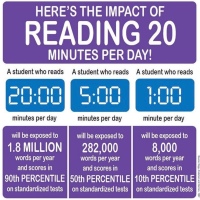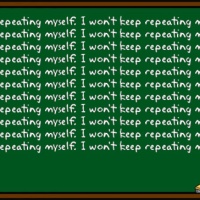my approach to writing.
In many ways, teachers are coaches. And because I’ve been with the franchise twenty-plus seasons (even though I’m only 25 😬), I’ve learned a thing or two along the way. So that students can have the best writing season possible, I wanted to share a little about my coaching style.
READ LIKE A WRITER.
“Writing comes from reading, and reading is the finest teacher of how to write” (Annie Proulx). If all students did this year was read more, their writing would improve immensely. Readers really do make better writers simply because they’re continuously exposed to good writing. William Faulkner put it this way: “Read, read, read. Read everything — trash, classics, good and bad, and see how they do it. Just like a carpenter who works as an apprentice and studies the master. Read! You’ll absorb it. Then write. If it’s good, you’ll find out. If it’s not, throw it out of the window.”
And if you take that a step further–and read like a writer (in addition to reading for enjoyment!), student writing will improve even more. Students begin noticing authorial craft: the ways authors poetically position the words, cleverly craft the sentences, brazenly break the rules. Reading–especially reading like a writer–will improve their writing more than any lesson, unit, or even full-year writing elective will.
MORE IS MORE.
Students publish a lot in all of my classes–English and Creative Writing. Like, a lot a lot. Quick-writes, blog posts, book reviews, checks for understanding, emulations, short pieces, lengthier ones, essays, etc. The more they write, the more comfortable (and better) they’ll become. It’s that simple.
REAL IS REAL.
Most of the assignments students are asked to do are what I call “real-world” writing. Educator-author Dr. Zachary Walker maintains that if schools are doing their jobs, “the last day of school should look like the first day of Real Life.” Full disclosure: Since I’ve graduated, I haven’t had to bubble in a Scantron or write an informative essay. Ever. But I have sent tens of thousands of emails and commented on social media posts and published product reviews and crafted eulogies and built my own blogging website. Returning to our coaching metaphor, by the end of our season together, my students will definitely be essay-writing starters, but, even more importantly, they’ll be prepared for the types of writing they’ll do long after they hang up their cleats.
PRACTICE, PRACTICE, PRACTICE.
Good writing instruction gives students “plenty of safe harbors where they can stumble, play, practice, and learn far away from teachers’ pens of any color” (Johnson 11). Coaching means “[giving] students time to develop and refine their new skills, ideas, and creations before [they] move on to the business of giving them feedback . . . In no other pursuit–ranging from painting to playing piano to shooting baskets–do we feel that every minute of practice should be observed and commented on by a teacher or coach. In those, we rightly identify that students need space and lots of practice. This is why the best music schools ring with far more notes than any instructor could ever process and the best diving practices have more flips and twists than any coach could ever see. It is also why writing classrooms should produce far more words than even the most efficient and diligent writing teacher could ever hope to read.” (11)
NOT EVERYTHING WILL BE GRADED.
In that vein, some of their writing won’t be graded. Or even read.
“Writing is not just the final, polished draft. Writing involves routines, skills, strategies, and practices, for generating, revising, and editing different kinds of texts” (Lisa Fink).
It’s a process. We’re never really finished–even when we submit our final draft. That’s just the best we could do at that moment.
And students and families need to know this right up front and be okay with it. The students grow so much as a writer each year, but they’ll never, ever “arrive.” Even at my ripe, old age of “25,” I’m constantly noticing interesting techniques while reading–techniques I’ll then try to emulate in my own writing.
Writers are always evolving. Evolution is growth. And that, Players, is exactly why we coaches have joined this fabulous franchise in the first place!
Now, it’s time to suit up.
JOHNSON, MATTHEW M. FLASH FEEDBACK: Responding to Student Writing Better and Faster - without ... Burning Out. SAGE PUBLICATIONS INC, 2020.








